Chinese-Backed Company Under Investigation for Illegal Waste Dumping in Cambodia
Cambodian authorities investigate Zhongbao (Cambodia) Food Technology Co., Ltd., a Chinese-funded company accused of dumping waste illegally in Siem Reap, causing environmental and public health hazards.
NEWSTC COMMUNITY
5/9/20255 min read
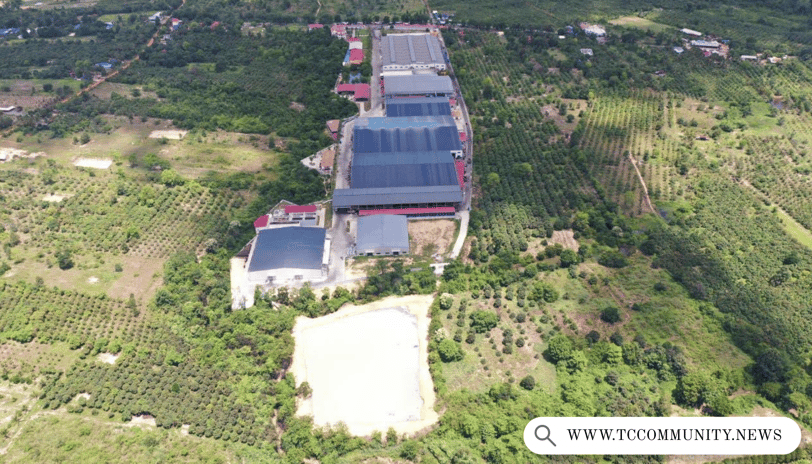

Chinese-Backed Company Under Investigation for Illegal Waste Dumping in Cambodia
In an alarming turn of events, Cambodian environmental authorities have launched an official investigation into Zhongbao (Cambodia) Food Technology Co., Ltd., a Chinese-funded company accused of illegally dumping wastewater and polluting local rivers in Siem Reap Province. The accusations, supported by community testimonies and scientific evidence, reveal significant damage to the local environment and public health. This case has ignited national concern and drawn attention to the need for stricter environmental enforcement in the country.
Background of the Company
Zhongbao (Cambodia) Food Technology Co., Ltd. operates primarily in the food processing sector, with a specialization in the drying and exportation of locally sourced mangoes. The company, which commenced operations over two years ago, quickly expanded its production capacity to meet growing demands from regional markets, including China.
Despite its economic contributions, the company has faced growing criticism from local communities who claim that Zhongbao's operations have led to ecological degradation, particularly in water bodies that are essential for drinking, irrigation, and aquatic life.
The Community’s Outcry
Residents in the surrounding areas have long raised alarms about environmental irregularities. Many locals reported an unusual discoloration in the nearby river and a foul odor emanating from the water over the past two years. Villagers claimed that fish populations had rapidly declined, and many dead fish were often found floating in the water.
Furthermore, numerous residents have suffered from unexplained skin irritations and other health issues after coming into contact with the water. As a result, villagers were forced to seek alternative sources of water by digging wells or purchasing bottled water—adding a significant financial burden to already struggling households.
Community leaders submitted multiple complaints to provincial authorities, but only after the issue attracted national media coverage did the Ministry of Environment dispatch a dedicated task force to investigate the matter.
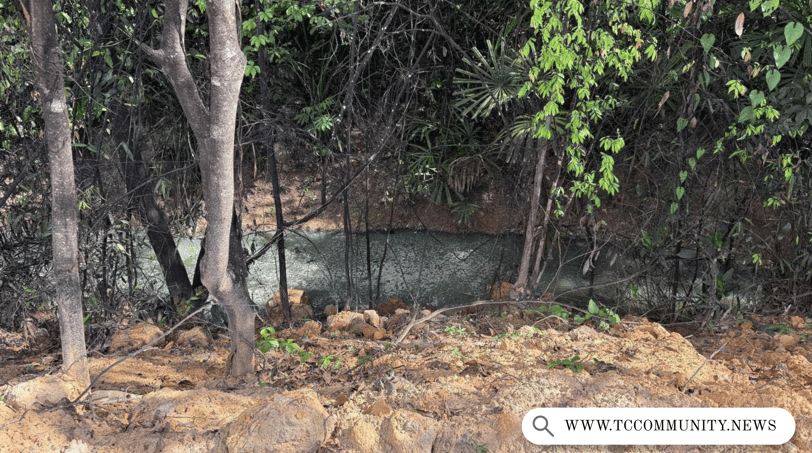

Environmental Impact Assessment
The investigation, carried out by the Ministry of Environment's working group, included on-site inspections and water quality tests. Samples collected from areas surrounding the Zhongbao factory confirmed the presence of pollutants consistent with industrial waste.
Key findings from the Ministry's report include:
High concentrations of chemical contaminants in water discharged by the factory.
Severe ecological damage, including destruction of aquatic ecosystems.
Diminished water quality, making it unfit for human consumption or agricultural use.
The report stated unequivocally that the discharged waste had not undergone any form of proper treatment and that the factory had failed to implement an effective wastewater management system.
Legal and Regulatory Action
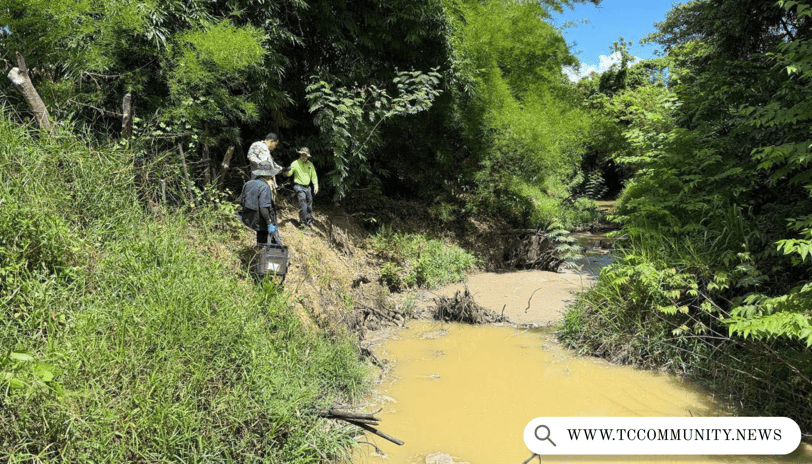

Based on the findings, the Cambodian government has ordered Zhongbao (Cambodia) Food Technology Co., Ltd. to immediately cease the discharge of any pollutants. Legal proceedings have also been initiated against the company for violating environmental protection laws.
According to the Ministry of Environment, this case marks one of the most serious environmental violations by a foreign-funded enterprise in recent years. The ministry emphasized that such actions are not only illegal but also show blatant disregard for Cambodia’s national policies on environmental sustainability.
Authorities have indicated that penalties may include substantial fines, suspension of operational licenses, and potential criminal charges against the company's management. The Ministry has also pledged to ensure that compensation is provided to affected communities.
National and International Reactions
The incident has stirred a wave of reactions both domestically and internationally. Environmental organizations have called for more stringent controls over foreign investments, especially those involving high-risk industries. Many fear that economic interests are being prioritized over environmental and public health concerns.
Several non-governmental organizations (NGOs) have launched campaigns demanding transparency and accountability. Greenpeace Southeast Asia issued a statement urging the Cambodian government to impose stronger environmental regulations and ensure that foreign businesses are held accountable for ecological damage.
In China, environmental watchdogs and trade analysts have also expressed concern, noting that incidents like this could harm China's image abroad and jeopardize diplomatic and trade relationships.
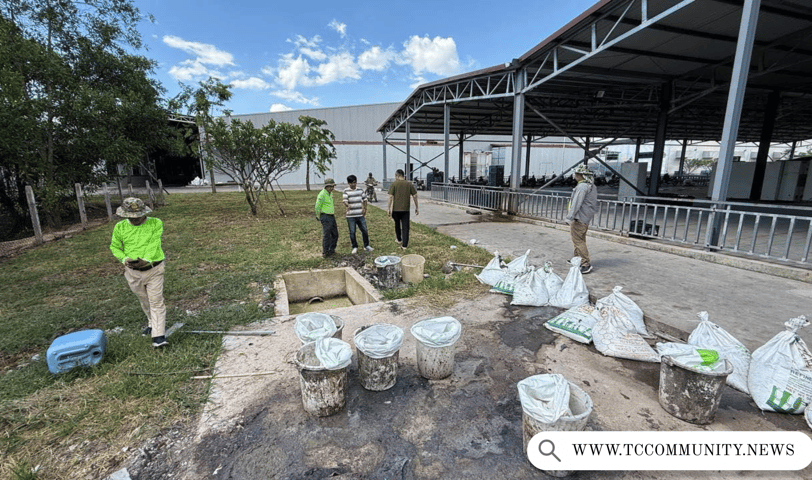

Voices from the Ground
Mrs. Sophea, a resident of a nearby village, shared her ordeal: "We used to fish in the river every day. Now, the water is dark and smells like chemicals. My children have skin rashes, and we cannot even use the water to cook rice. We have to buy clean water, which is expensive."
Mr. Chantha, a local farmer, added, "The pollution has affected my crops. The soil is not the same. We need support from the government and justice for our suffering."
These testimonies underscore the severity of the crisis and the urgent need for corrective action.
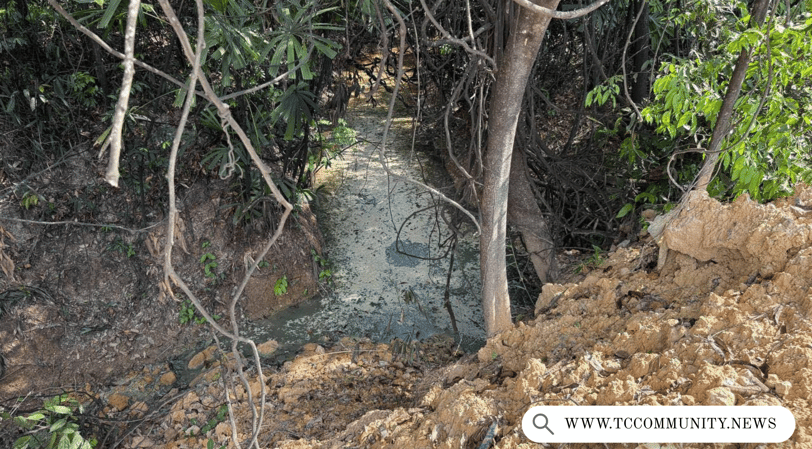

Cambodia’s Environmental Policy in Focus
This incident has put Cambodia's environmental policies under the spotlight. Although the country has laws in place to regulate industrial waste disposal, enforcement remains inconsistent. Many believe that regulatory agencies lack the resources and authority needed to confront powerful companies—especially those with foreign backing.
Experts argue that to prevent similar incidents, the government must:
Enhance environmental monitoring capabilities.
Impose stricter licensing requirements.
Require environmental impact assessments before project approvals.
Create public platforms for communities to report violations.
Partner with international watchdogs and environmental experts.
The Way Forward
As the legal process unfolds, the Cambodian government faces mounting pressure to set a precedent with this case. The outcome will likely influence how future foreign investments are managed and regulated within the country.
In the short term, remediation efforts will need to focus on restoring the damaged ecosystem, ensuring access to clean water for affected communities, and providing medical support for those suffering from pollution-related ailments.
Long-term strategies should include building institutional capacity, fostering community engagement, and promoting responsible business practices among foreign investors.
The case of Zhongbao (Cambodia) Food Technology Co., Ltd. is a stark reminder of the potential consequences when environmental regulations are neglected in the pursuit of economic growth. The suffering of Siem Reap residents cannot be ignored, and justice must be served to prevent similar tragedies in the future.
This investigation not only challenges Cambodia to reassess its regulatory frameworks but also sends a clear message to international businesses: profit cannot come at the cost of people and the planet.
Our Community
Lucknow, Uttar Pradesh, India
Contacts
Help@tccommunity.info
@arman_seotc (Telegram)
Our Legality
Certificate of Operation Charter
Privacy of Policy
Terms and Conditions
